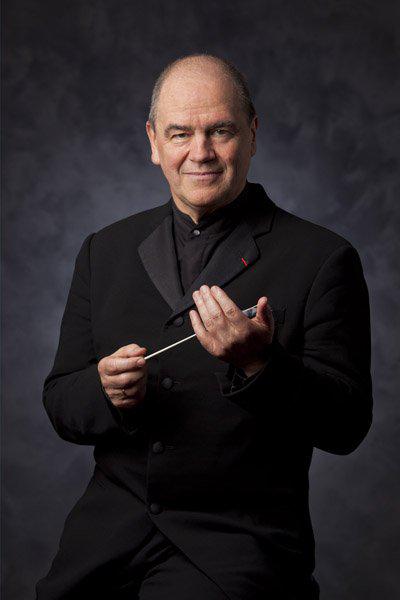Rituals and a Serenade at the Schermerhorn

On November 16th and 17th the Nashville Symphony along with the Nashville Symphony Chorus, hosted visiting conductor Hans Graf for an interesting concert of late Romantic and Neo-classical works, including Richard Strauss’s Serenade in E-flat Major (Op. 7), Igor Stravinsky’s Symphony of Psalms, and Maurice Ravel’s Daphnis et Chloé at the Schermerhorn Symphony Hall.
Strauss composed his Serenade in E-flat Major, Op. 7 when he was just 17 years old, decades before his famous tone poems and his shocking operas Salome and Electra. As such, it reveals his adoption of the classical style, an attribute that will underpin his darker, late Romantic works. Titus Underwood, Nashville’s principle Oboist, deserves special mention for the subtle and beautiful handling of Strauss’s opening theme. It was an interesting piece for Maestro Graf to open the concert, but well chosen as the intimacy and utopian idealism would provide a powerful contrast with the works to follow.
If a conservative, Classical approach lied beneath Strauss’s Serenade, Stravinsky’s neo-Classical Symphony of Psalms places the era’s cold symmetry and objective expression in the forefront. Stripped of his Russian primitivism this late in his career, the Symphony of Psalms remains primal, but universal, expressing a ritual distinctly human yet without any grounding in ethnic reference. Taking verses from the Latin Vulgate bible, the lines aren’t set with an emphasis on the meaning, but instead their ritualistic sound. In this performance, Chorus Director Tucker Biddlecombe had prepared his singers quite well. The chant-like monotony of the first movement, much of it is given on two notes, was haunting yet revelatory. For Graf’s part, he maintained a strong balance among the various parts of Stravinsky’s odd orchestra, lacking as it does the emotional high strings and instead employing an enriched (and objective) wind section. The balance was particularly well done in the second movement with its multiple fugues and insistent imitative counterpoint.

The final, and longest piece on the program, Ravel’s ballet, Daphnis et Chloé, also begins with a lengthy ritual, this one more otherworldly and mystical—the story follows two foundlings in a pastoral landscape where they are confronted by nymphs, Shepherdesses, the God Pan and Pirates among other things on their way to true love. The plot provides ample opportunities for Ravel to demonstrate his extraordinary ability in orchestration. The clarinet and flute excerpts from this piece are legendary, and Érik Gratton (Principal Flute) and James Zimmermann (Principal Clarinet) handled them deftly. The sunrise in the final part, coupled with the beautiful wordless chorus closed the evening in a lovely way.
In all it was a very nice concert, if perhaps just a little short, and containing three pieces you don’t get to hear too terribly often. The Aegis Sciences Classical Concert Series continues in January with Cosmos – an HD Odyssey featuring the New World Symphony and the rarely heard Violin Concerto by Alban Berg, performed by Gil Shaham.



